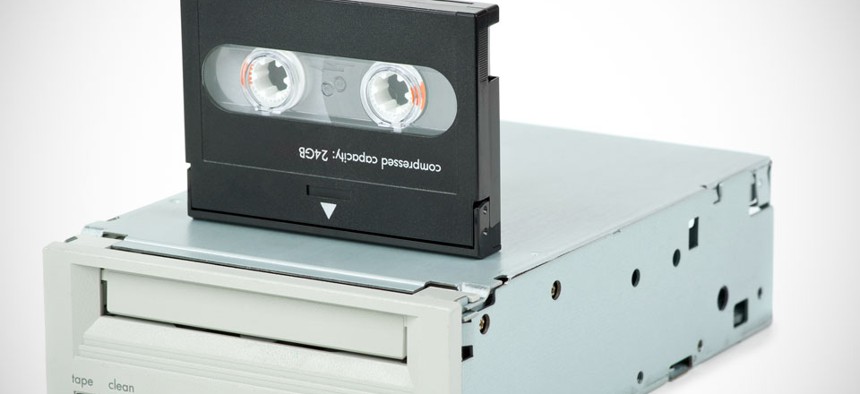Customs Agency Has to Keep Records for 75 Years. That’s a Lot of Tape Drives.

Ivaschenko Roman/Shutterstock.com
U.S. Customs and Border Protection is mandated to store certain records for more than 70 years.
In the government, emerging technologies often find themselves on a collision course with existing -- sometimes woefully outdated -- federal policies and legal frameworks.
One of the most glaring examples of this has emerged in the current net neutrality debate: Rules created when rotary phones were people’s primary means of communication still govern today’s Internet.
The only person I know who even uses a rotary phone anymore is my grandfather, a retired dairy farmer who shunned technology to the degree that he disliked new-age tractors with onboard computers. He does have a cell phone for emergencies, by the way.
Stated simply, yesterday’s policies are often detrimental to today’s technologies, and while many of the government’s top tech officials regularly bemoan this fact, their hands are often tied.
Wolf Tombe, chief technology officer at U.S. Customs and Border Protection, recently shared an interesting tidbit about records management at CBP.
Speaking Jan. 15 at the Federal Cloud Computing Summit in Washington, D.C., Tombe said his agency is mandated to store certain records collected by its border-enforcement system, known as TECS, “for up to 75 years.”
That sounds crazy, but it’s totally true.
Subject records and CBP inspection reports collected today will be stored until 2090. The logic is that because these records and reports are created when there is a law enforcement interest in a subject or the subject has connections to an enforcement action, they might prove useful in future court cases or investigations.
But as Tombe alluded to, such policies pose difficult technological challenges, including storage.
Remember the floppy disk drives that occupied every PC only 15 years ago? They’ve gone the way of the dinosaur, replaced by CD-ROMs, DVDs and the like – all of which will eventually suffer the same fate as poor, old floppy disk drives.
CBP is looking into optical storage devices that could better guarantee data integrity over time. But as Tombe said, Moore’s Law keeps pushing out the new technologies that earlier phased out the legacy ones. Good luck finding a storage medium that stands the test of time for more than seven decades.
Now, Tombe didn’t criticize the policy, but you have to wonder if the juice is worth the squeeze in this situation. How old would records have to be before they wouldn’t even be relevant or permissible to use in a court case? I asked various DHS officials and none could think of a court case going back more than “five to 10” years that actually made use of such records.
Shortening the length of record-keeping seems like it would make sense, but as we’ve seen across government, agency-specific policies in place for decades aren’t easily overturned or revamped. And members of a historically inactive Congress haven’t exactly been bursting at the seams to tackle meaningful technology legislation, either.
This is in stark contrast to private sector organizations. They face the same problems when it comes to adopting business and innovation drivers like mobile solutions and cloud computing. But changing old policy is often a matter of dollars and cents -- not bureaucracy.
(Image via Ivaschenko Roman/Shutterstock.com)






